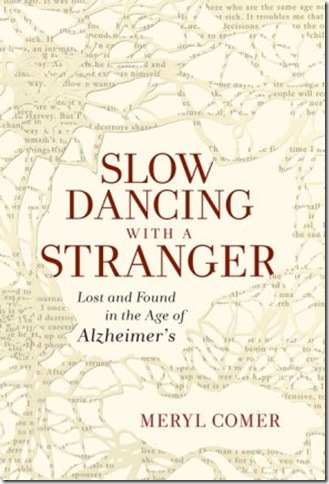Harvey Gralnick was a 56-year-old esteemed doctor at the National Institutes of Health in Maryland when his wife and colleagues began noticing changes in his behavior — forgetting things, getting lost, lashing out.
A medical examination found nothing wrong, but two years later a physician suggested that Gralnick might be suffering from early-onset Alzheimer’s.
“I had never heard of the disease, and no doctor had ever mentioned it,” writes Gralnick’s wife, Meryl Comer, in this frank, sad memoir of the devastation wrecked on Alzheimer’s patients and their families.
As his illness progressed, Gralnick became “more aggressive, egocentric and emotionally abusive.” He forgot names, became irritable and did not recognize Comer as his wife. During the short drive home from work, he would lose his way.
Eventually Gralnick was forced to retire, and Comer gave up her job as a TV newscaster to care full time for her declining husband.
As Gralnick’s condition progressed, Comer moved him into various institutions, but nothing worked. Staying at one top-notch facility would have cost $180,000 a year. Their savings soon evaporated and she resigned herself to caring for him at home, with the help of aides.
Comer suffered from exhaustion, isolation and depression. She changed his diapers, brushed his teeth, showered him and cleaned up his accidents. One day as she was washing him, he punched her in the face, smashing her front teeth and causing blood to gush from her mouth.
She thought about divorce or helping her husband to end his life, but rejected those options as selfish and immoral.
After Comer’s mother started showing similar signs of dementia she, too, was diagnosed with Alzheimer’s. She did not want to leave her home, but Comer insisted that she move in with her and her ailing husband.
More than 5 million Americans suffer from Alzheimer’s. Comer wants to educate people about the importance of early testing and detection. There is no cure for the illness, but early treatment can slow its advance. The illness received publicity when former President Ronald Reagan said he was suffering from Alzheimer’s, but for the most part this dreadful disease has not received wide public attention.
The author’s husband has been living with Alzheimer’s for nearly two decades, far longer than expected. Years ago he was told that he likely had only months to live.
Comer dreads the possibility that she may inherit Alzheimer’s from her mother because she has one of the genetic markers associated with increased risk of the fatal illness. Comer forgets names and misplaces keys, causing her to worry, even though such forgetfulness can be a sign of normal aging and not necessarily an indicator of dementia.
Although Gralnick cannot speak, does not recognize his wife, sleeps most of the day and is confined to a wheelchair, her devotion remains steadfast. “I have slept by his side all these years to reassure him that he is safe at home,” she writes. “I kiss him at night and snuggle in close, like we used to do.”
Comer is a first-time author and the book is a bit disorganized and repetitious. Nevertheless, her compelling account will be of interest to anyone who has a friend or family member suffering from Alzheimer’s.
This is a tough book to read and one feels sorrow and compassion for Comer, as well as for her ailing husband and mother.
On the final pages, Comer intones, “When I stare in the mirror, I see only exhaustion and twenty years lost. I am still looking for the same thing I wanted when I first learned that Harvey had Alzheimer’s disease: a way out for us all.”
***
Slow Dancing With a Stranger: Lost and Found in the Age of Alzheimer’s, by Meryl Comer; HarperOne, 224 pp., $26.99
Bill Williams is a freelance writer in West Hartford, Conn., and a former editorial writer for The Hartford Courant. He is a member of the National Book Critics Circle and can be reached at billwaw@comcast.net.
